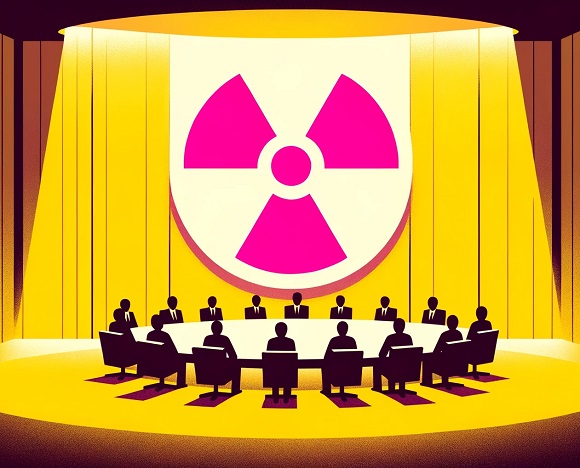Hi, Dr. Zoomie – so I recently was given responsibility for our radiation safety program. We don’t have many radioactive sources and our radiation safety program isn’t very complicated – do we really need to have a Radiation Safety Committee? We used to do more stuff with radiation, but not so much now. Thanks! By the way – what good is a Radiation Safety Committee anyhow? I have to admit ours doesn’t seem to be very useful.
OK – so let’s start with what a Radiation Safety Committee (RSC) is good for. I’ve worked with a few RSCs in the past, some useful and some not. I should start by saying that the membership of the RSC is important – members should represent those who are working with radiation, those supervising this work, and management. So, for example, at a university you might want to include a scientist or two, a laboratory technician, a department chair, and maybe a dean; in a hospital you should consider representatives from the major departments that use radiation (including a physician or two as well as a nurse and/or technician), and a hospital administrator. All of these people, of course (except maybe the administrators) should be involved in using radiation and/or radioactivity. The purpose of an RSC is to oversee the activities of the RSO and the radiation safety program, but they can do so much more than that. Here are some examples, drawn from my personal experience. For example, the RSC can:
- Review and approve any disciplinary and/or corrective actions that must be meted out to individual radiation workers or to Authorized Users who supervise (for example) a laboratory, medical department, or work group that uses radioactive materials.
- Help the RSO to understand how they use radiation and radioactivity to help the RSO develop and implement policies and procedures that make sense.
- Review and comment on important documents, proposed policies, license amendments, annual audits of the radiation safety program, and so forth.
- Review and approve the annual budget as well as occasional large purchases.
The place to start is with the regulations and with your radioactive materials license. If, for example, you’re RSO for a large university then your radiation safety program is likely to be large and complex – what’s referred to as a “Type A specific license of broad scope” in 10 CFR 33.13 – then the regulations are going to require that you have a Radiation Safety Committee to oversee the RSO’s activity. If, on the other hand, there is no requirement for an RSC at a commercial nuclear pharmacy or to operate an irradiator. Unless you have a Type A broad scope license then you’re likely not required by the regulations to have an RSC. So that’s what the regulations call for.
The next thing to do is to take a look at your radioactive materials license to see if that requires you to have an RSC – that would be one of the conditions listed in your license, after the section listing the radioactive sources and devices you’re licensed to have. Your license conditions are also requirements that you have to follow, just as my driver’s license requires me to wear glasses in order to drive legally.
Finally, take a look at your license application – the package of documents that were submitted when your company first requested permission to own and use radioactive materials. The license application includes a description of your organization’s radiation safety program – these include commitments that were made to the regulators and these commitments frequently go beyond what is required by regulations. If your license application states that you will have an RSC then you’re required to have an RSC.
Here’s the thing – if an RSC is only called for in your license or in your license application then it’s something you can change by amending your license. This will take a little effort, but need not take a lot – what you’ll need to do is to get concurrence from your management and write an amendment request to your regulators in which you state:
- The nature of the amendment you’re requesting (in this case, to remove the requirement to have an RSC)
- Note that, although your license (or license application) calls for you to have an RSC, it is not required by the regulations,
- Explain who will oversee the RSO’s work in the absence of an RSC (perhaps you’ll report to the Safety Committee or will report to the director of Environmental and Occupational Health and Safety, or the equivalent).
This amendment request will need to be signed by someone in your organization’s management; this could be a vice president, the chair of your safety committee, even the RSC chair (if you have an RSC). The bottom line is that your regulators want to know that changing your license isn’t just your brilliant idea but that your organization is behind the idea as well.
So – a quick recap!
- A good RSC can be helpful to the RSO, especially if you’ve got a complex radiation safety program
- But, for a small and simple program an RSC can be a bit of overkill
- Before trying to do away with your RSC, confirm that it’s not required by regulations, your license, or your license application
- And if it is required by your license or license application, with the concurrence of your organization’s management (and the RSC) you can request to amend your license.
Good luck!
